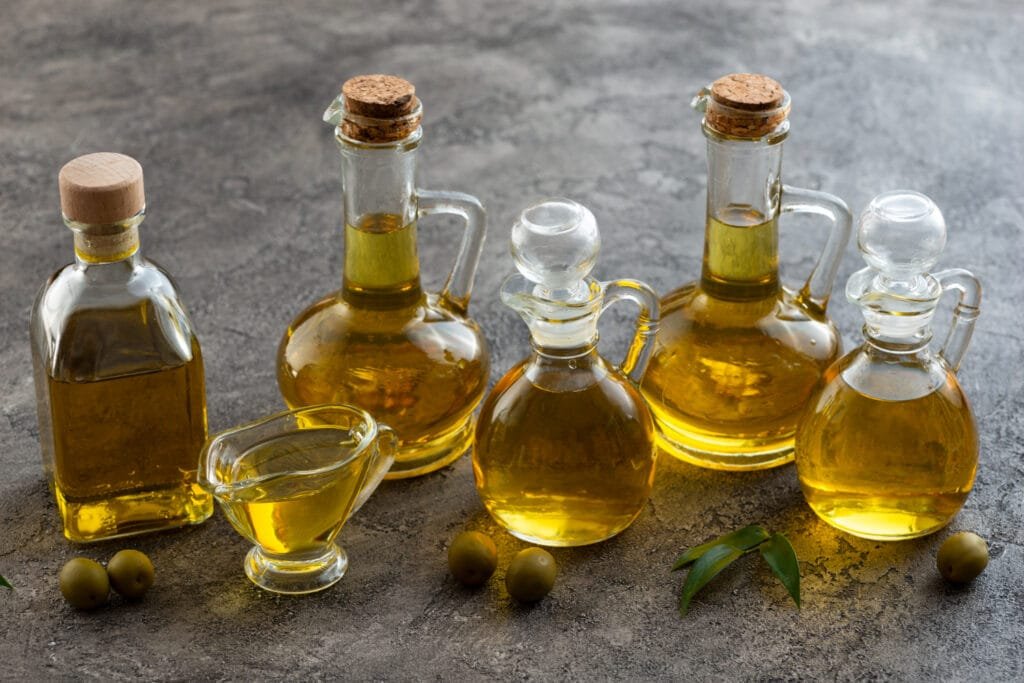Choose Best Cooking Oils for Frying and Get Healthy Life
Frying is a cooking method loved by many because it makes food crispy and delicious. However, the type of oil you use plays a critical role in determining the health effects of your fried foods. Some oils are better suited for frying due to their stability at high temperatures, while others offer additional health benefits. By choosing the right oil, you can enjoy delicious fried foods while maintaining a balanced diet.
When selecting a cooking oil for frying, consider factors such as smoke point, stability, flavor, and nutritional profile. A high smoke point ensures that the oil does not break down and produce harmful compounds when exposed to high heat. Stability refers to how resistant an oil is to oxidation, which can cause rancidity and the formation of free radicals. The flavor of an oil can influence the taste of your dish, and its nutritional composition determines its impact on overall health.
Let’s explore the five best oils for frying, along with their benefits and best uses.
1. Avocado Oil

Avocado oil has one of the highest smoke points at 520°F (271°C), making it an excellent choice for deep frying, pan frying, and sautéing. Unlike some other oils, it remains stable at high temperatures, minimizing the formation of harmful substances.
Health Benefits
Avocado oil is rich in monounsaturated fats (MUFAs), which are known to promote heart health by reducing bad cholesterol levels (LDL) and increasing good cholesterol (HDL). It is also a good source of vitamin E, an antioxidant that protects cells from oxidative stress and supports skin health. Additionally, avocado oil aids in the absorption of fat-soluble vitamins, helping the body maximize nutrient intake from food.
Thanks to its neutral yet slightly buttery taste, avocado oil is versatile and works well in deep frying, roasting, and stir-frying. It is also a great option for salad dressings and marinades.
2. Peanut Oil

Peanut oil, widely used in Asian and Southern cuisine, has a high smoke point of 450°F (232°C), making it ideal for frying foods like French fries, tempura, and fried chicken.
Health Benefits
Peanut oil is high in monounsaturated and polyunsaturated fats, which help lower cholesterol and reduce the risk of heart disease. It also contains resveratrol, a natural antioxidant that may help protect against cardiovascular issues. Due to its stability at high temperatures, peanut oil produces fewer harmful oxidation byproducts than some other vegetable oils.
Peanut oil’s neutral taste makes it suitable for deep frying and stir-frying. It is commonly used in Asian cooking and is an excellent option for frying battered foods, ensuring a crispy texture without absorbing too much oil.
3. Coconut Oil

Coconut oil has a moderate smoke point of 350°F (177°C), making it better suited for shallow frying and sautéing rather than deep frying. Due to its high saturated fat content, it is highly stable and resistant to oxidation.
Health Benefits
Coconut oil is rich in medium-chain triglycerides (MCTs), which are quickly metabolized by the liver and used as an immediate energy source. These fats may also support weight management and brain function. Additionally, coconut oil has antibacterial and antifungal properties, thanks to its high lauric acid content, which can support immune health. Some studies suggest that coconut oil may help boost metabolism and promote fat loss.
Coconut oil imparts a mild sweetness to food, making it a great option for frying baked goods, pancakes, and vegetables. It can also be used in curry dishes and tropical-inspired meals.
4. Olive Oil (Light or Refined)

While extra virgin olive oil has a lower smoke point, light or refined olive oil has a higher smoke point of about 465°F (240°C), making it a safer choice for frying. Olive oil is renowned for its heart-healthy properties and is a staple in Mediterranean cuisine.
Health Benefits
Olive oil is high in monounsaturated fats, which support cardiovascular health by lowering LDL cholesterol and reducing inflammation. It is also rich in antioxidants and polyphenols, which help fight oxidative stress and may reduce the risk of chronic diseases. Furthermore, olive oil has been linked to improved brain health and may help protect against cognitive decline.
Refined olive oil is an excellent choice for frying meats, seafood, and vegetables. It adds a mild, pleasant flavor to dishes without overpowering them. Additionally, it can be used for roasting, grilling, and baking.
5. Sunflower Oil (High-Oleic Variety)

Sunflower oil, specifically the high-oleic variety, has a smoke point of around 440°F (227°C) and is a healthier alternative to traditional vegetable oils due to its high monounsaturated fat content.
Health Benefits
High-oleic sunflower oil is rich in vitamin E, which supports skin health and helps combat oxidative stress. It also contains healthy monounsaturated fats, which contribute to heart health by lowering bad cholesterol levels. Additionally, high-oleic sunflower oil is more stable than regular sunflower oil, meaning it resists oxidation and has a longer shelf life
Sunflower oil’s neutral flavor makes it an excellent choice for frying snacks, chips, and battered foods. It is also widely used in commercial food preparation due to its stability and light taste.
Tips for Healthier Frying
Even when using the best oils, it’s important to follow healthy frying practices to reduce the intake of unhealthy fats and minimize harmful compound formation:
- Use fresh oil whenever possible – Reusing frying oil multiple times can lead to oxidation and the formation of toxic compounds.
- Monitor the temperature – Avoid overheating oil, as this can produce harmful free radicals.
- Drain excess oil – Use paper towels or drying racks to remove excess oil from fried foods.
- Avoid overcrowding the pan – Cooking in small batches ensures even frying and reduces oil absorption.
- Pair fried foods with healthy sides – Serve fried dishes with fresh vegetables, whole grains, and lean proteins to create a balanced meal.
Choosing the right oil for frying is key to making your favorite dishes both tasty and nutritious. Avocado oil, peanut oil, coconut oil, olive oil, and high-oleic sunflower oil all provide great frying properties while offering various health benefits. By using these oils and following proper frying techniques, you can enjoy crispy, flavorful foods without unnecessary health risks.
With the right choices, you can turn frying into a healthier cooking method while still enjoying the textures and flavors you love. Happy cooking!

